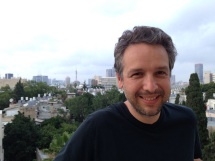Why do Organisms Age: Beyond Energy Trade-Offs

Alexei Maklakov
School of Biological Sciences, University of East Anglia, UK.
Despite tremendous progress in recent years, our understanding of the evolution of ageing is still incomplete. The long-standing paradigm, the “disposable soma” theory of ageing, maintains that ageing evolves because of competing energy demands of reproduction and somatic maintenance leading to slow accumulation of unrepaired cellular damage with age. This paradigm has been increasingly challenged as studies in different organisms managed to uncouple reduced reproduction and increased longevity, thereby questioning the centrality of energy trade-offs in ageing. Emerging “hyperfunction” theory proposes that ageing can be caused by a trade-off between early-life function and late-life function of growth-promoting genes leading to excessive biosynthesis in late-life. This theory builds on the realisation that early-life regulation of gene expression can break down in late-life because natural selection is too weak to optimise it. I will discuss these ideas in the context of the evolutionary theory of ageing, and show recent experimental data testing these ideas in Caenorhabditis nematodes.


